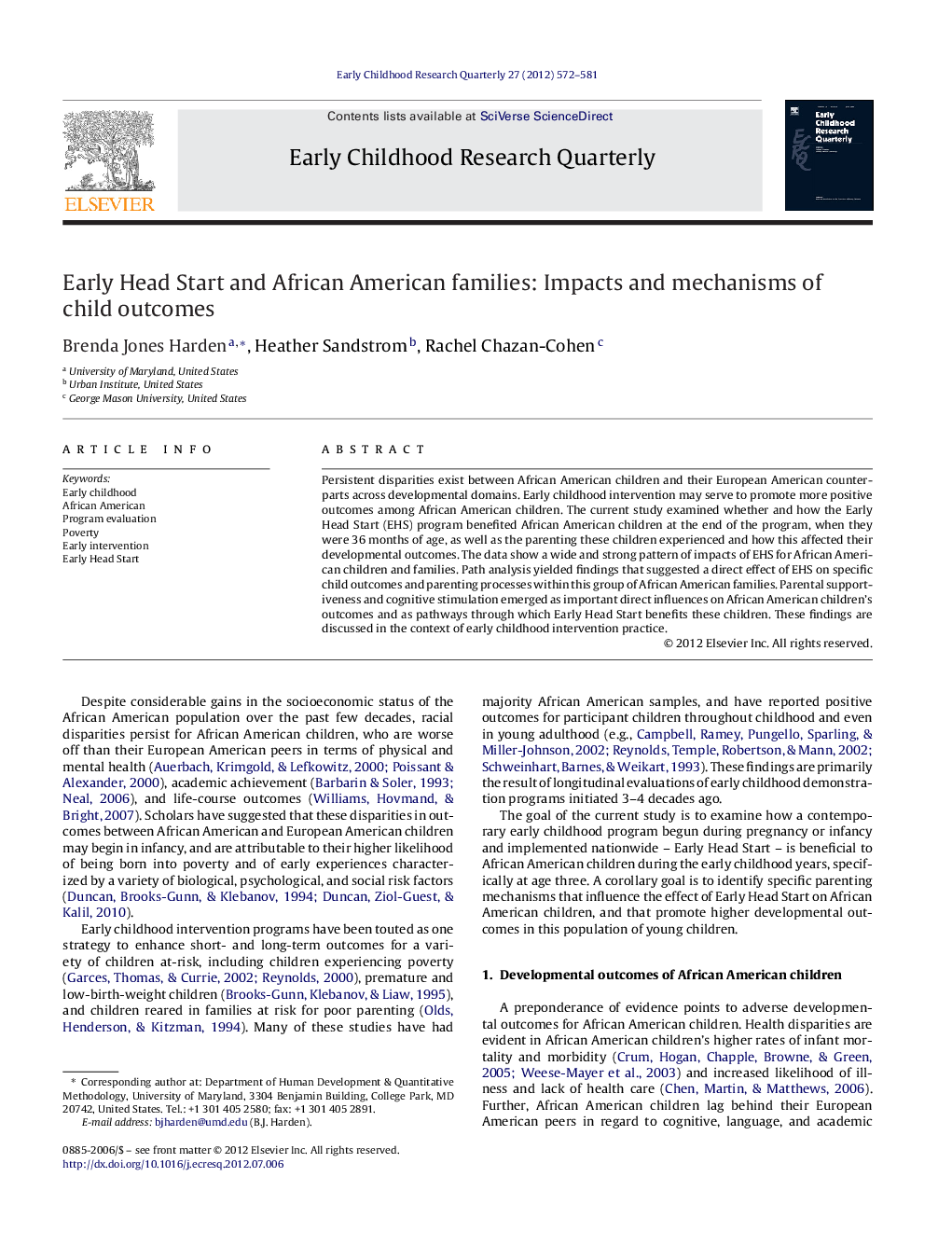| Article ID | Journal | Published Year | Pages | File Type |
|---|---|---|---|---|
| 354068 | Early Childhood Research Quarterly | 2012 | 10 Pages |
Persistent disparities exist between African American children and their European American counterparts across developmental domains. Early childhood intervention may serve to promote more positive outcomes among African American children. The current study examined whether and how the Early Head Start (EHS) program benefited African American children at the end of the program, when they were 36 months of age, as well as the parenting these children experienced and how this affected their developmental outcomes. The data show a wide and strong pattern of impacts of EHS for African American children and families. Path analysis yielded findings that suggested a direct effect of EHS on specific child outcomes and parenting processes within this group of African American families. Parental supportiveness and cognitive stimulation emerged as important direct influences on African American children's outcomes and as pathways through which Early Head Start benefits these children. These findings are discussed in the context of early childhood intervention practice.
► We examine the impacts of Early Head Start on African American families and the mechanisms by which these impacts are achieved. ► There is a strong and broad pattern of benefits of Early Head Start for African American children and parents. ► Early Head Start has a direct effect on African American children's sustained attention and interpersonal engagement. ► Parental supportiveness is an important pathway through which Early Head Start affects African American children's outcomes.
